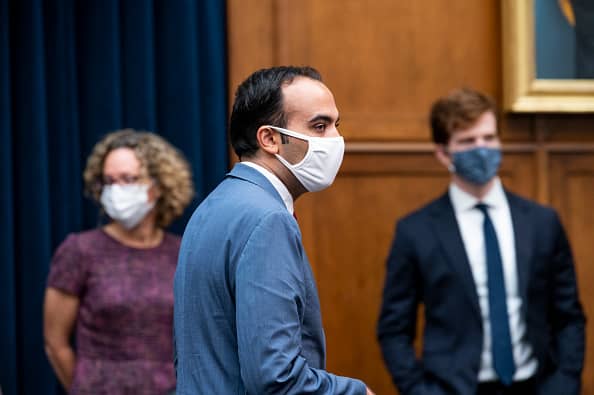Products You May Like
The Consumer Financial Protection Bureau on Friday pledged a crackdown on student loan servicers that flout rules on loan forgiveness for public servants.
The government agency said it “plans to prioritize” oversight of student loans in the coming year, with a “specific focus” on monitoring how servicers are engaging with federal-loan borrowers about public service loan forgiveness, according to a compliance bulletin.
That forgiveness program, created in 2007, lets nonprofit and government employees have their remaining federal student loans excused after 120 payments (or 10 years).
More from Personal Finance:
Education Department forgives $415 million in student debt
The cost of long-term care is rising amid staffing shortages
A petition for an $18 minimum wage is gaining signatures in California
The program has been plagued by problems, and few borrowers have gotten the promised relief, many times because of confusing or technical reasons.
The CFPB, established in the wake of the 2008 financial crisis, found that some loan servicers — which manage student-loan accounts — had deceived borrowers about their ability to become eligible for public service loan forgiveness, according to the memo issued Friday.
The Biden administration loosened the program’s rules in October, offering a waiver that essentially gave borrowers who’d been shut out of forgiveness a second chance. The U.S. Department of Education estimates the move could impact 550,000 borrowers.
But there are certain steps many must take before Oct. 31 to qualify, and the CFPB is worried servicers may not be give borrowers accurate and complete information.
(For example, to receive benefits, some borrowers will have to apply to consolidate their federal loans into a particular type of loan, called a Direct Loan, and submit a forgiveness form by Oct. 31.)
“Illegal conduct by a student loan servicer can be ruinous for borrowers who miss out on the opportunity for debt cancellation,” CFPB Director Rohit Chopra said in Friday’s announcement. “We will be working closely with the U.S. Department of Education to ensure that loan cancellation promises for public service are honored.”
Chopra, appointed by President Joe Biden, oversaw student loans at the bureau during the Obama administration.
The Dodd-Frank Act, signed in July 2010, established the CFPB to protect consumers from unfair, abusive and deceptive financial practices — a response to the risky loans that tipped the U.S. into a deep recession.
The bureau polices banking, mortgages, student loans, debt collection, credit cards, credit reporting and payday loans, among other areas. This broad consumer oversight hadn’t previously been the primary focus of one federal agency.
The watchdog will focus its scrutiny of federal-loan servicers on a few areas, according to its compliance bulletin: whether firms give complete and accurate information about the forgiveness waiver, if they have adequate mechanisms to identify when borrowers are interested in the program or to direct eligible borrowers to the appropriate resources, and whether firms are promoting the benefits of forgiveness to such borrowers.
The compliance crackdown comes as the White House weighs actions it might be able to take to forgive federal student loan debt. The Education Department said Thursday it forgave a total $415 million in debt for nearly 16,000 borrowers who attended for-profit schools.
